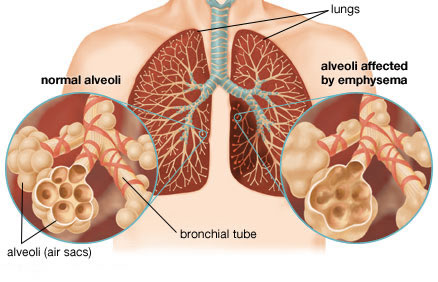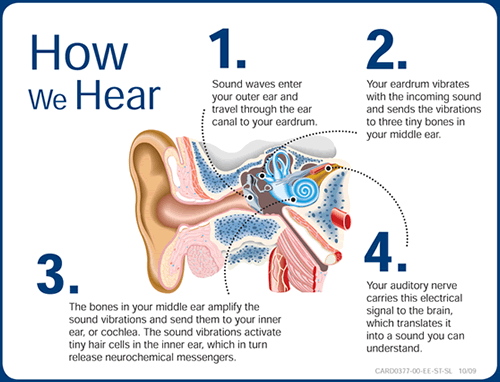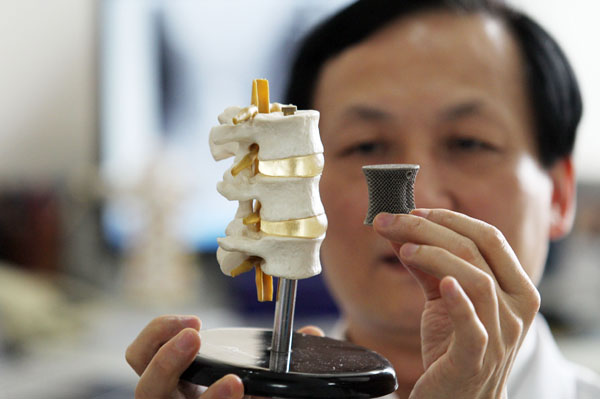Study shows treatment for genetically caused emphysema is effective

|
A landmark clinical study in the Lancet provides convincing evidence that a frequently overlooked therapy for genetically-caused emphysema is effective and slows the progression of lung disease.
Alpha-1 antitrypsin deficiency is an inherited disorder that can cause emphysema even without exposure to tobacco smoke. Alpha-1 antitrypsin (AAT) is a protein made in the liver that protects the lungs. With this disorder, the AAT protein builds up in liver cells and doesn’t reach the lungs to protect them. Augmentation therapy involves regular infusions of purified AAT protein to raise the level of the protein in the blood and lungs. Although the therapy has been available for more than 25 years, it has seen limited use because doctors have been unsure that it works.
The study, “Intravenous augmentation treatment and lung density in severe α1 antitrypsin deficiency (RAPID): a randomised, double-blind, placebo-controlled trail,” published online today will change how clinicians understand this treatment and encourage them to consider its early use before the condition causes severe emphysema.
Hearing impairment higher among Hispanic/Latino men, older individuals

|
Hearing impairment was more prevalent among men and older individuals in a study of U.S. Hispanic/Latino adults, according to a report published online by JAMA Otolaryngology-Head and Neck Surgery.
Hearing impairment is a common chronic condition that affects adults. Hearing impairment may lead to lower quality of life and is associated with an increased risk for dementia. Most hearing impairment is undiagnosed and untreated.
Karen J. Cruickshanks, Ph.D., of the University of Wisconsin, Madison, and co-authors determined the prevalence of hearing impairment among Hispanic/Latino adults from diverse backgrounds and identified the factors associated with hearing impairment.
The authors used data from the Hispanic Community Health Study/Study of Latinos, a population-based sample of Hispanic/Latinos from New York, Chicago, Miami, and San Diego, Calif. The study examined 16,415 self-identified Hispanic/Latino individuals who were between the ages of 18 and 74.
Designing better medical implants

|
Biomedical devices that can be implanted in the body for drug delivery, tissue engineering, or sensing can help improve treatment for many diseases. However, such devices are often susceptible to attack by the immune system, which can render them useless.
A team of MIT researchers has come up with a way to reduce that immune-system rejection. In a study appearing in the May 18 issue of Nature Materials, they found that the geometry of implantable devices has a significant impact on how well the body will tolerate them.
Although the researchers expected that smaller devices might be better able to evade the immune system, they discovered that larger spherical devices are actually better able to maintain their function and avoid scar-tissue buildup.
“We were surprised by how much the size and shape of an implant can affect its triggering of an immune response. What it’s made of is still an important piece of the puzzle, but it turns out if you really want to have the least amount of scar tissue you need to pick the right size and shape,” says Daniel Anderson, the Samuel A. Goldblith Associate Professor in MIT’s Department of Chemical Engineering, a member of MIT’s Koch Institute for Integrative Cancer Research and Institute for Medical Engineering and Science (IMES), and the paper’s senior author.
Single low-magnitude electric pulse successfully fights inflammation

|
The Feinstein Institute for Medical Research, the research arm of the North Shore-LIJ Health System, and SetPoint Medical Inc., a biomedical technology company, today released the results of research on the therapeutic potential of vagus nerve stimulation. In a paper published by Bioelectronic Medicine, Kevin J. Tracey, MD, and his colleagues at the Feinstein Institute, explore how low-level electrical stimulation interacts with the body’s nerves to reduce inflammation, a fundamental goal of bioelectronic medicine.
Prior to this study, it was not understood which vagus nerve fiber types were responsible for reducing the body’s inflammatory activity. The paper’s findings indicate that activation of either motor or sensory vagus nerve bundles can diminish inflammation.
“Identifying the exact role of the different nerve bundles in the inflammatory reflex bolsters our understanding of the relationship between the central nervous system and the vagus nerve,” said Dr. Kevin J. Tracey, president and CEO of the Feinstein Institute. “Furthermore, we now know that stimulating the vagus nerve for as little as half a millisecond is enough to inhibit tumor necrosis factor (TNF) production.”
After establishing the neural bundles activated in vagus nerve stimulation, the researchers found that only low-intensity, short-duration, electric pulses were needed to reduce the production of inflammation-inducing cytokines. Repetition of the pulses did not increase the success of the treatment in this experiment indicating that a single stimulating pulse is potentially sufficient.
Profiling approach to enable right lung cancer treatment match

|
Manchester researchers have tested a new way to genetically profile lung cancer samples, potentially allowing doctors to more easily identify the most appropriate treatment for patients.
Non-small cell lung cancer (NSCLC) represents over 85% of lung cancer cases. The recent introduction of targeted therapies has led to improved patient survival, but only patients whose tumours have a specific genetic change are eligible for such treatments.
Identifying individual patients who may benefit from targeted therapy is becoming an essential part of treatment planning, but many current genetic analysis methods such as next generation sequencing require relatively large amounts of tumour material.
Dr Fiona Blackhall, a senior lecturer in The University of Manchester’s Institute of Cancer Sciences and a consultant based at The Christie NHS Foundation Trust - both part of the Manchester Cancer Research Centre - said: “Unfortunately the biopsy samples we take from these patients are generally quite small. In this study we looked at an alternative genetic screen that utilises a much smaller tissue biopsy to see if it can detect a range of changes in 26 key genes.”





